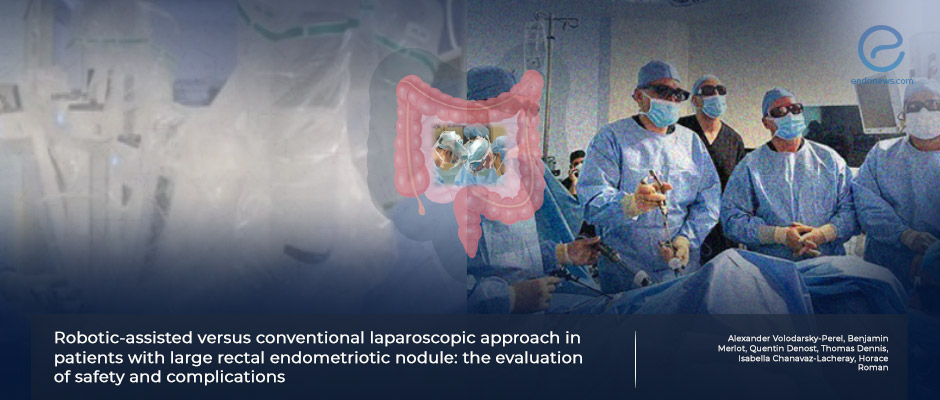Robotic Surgery Not Linked With More Complications in Certain Cases
Oct 27, 2023
Robotic surgery to treat certain types of endometriosis is not linked with increased risk of complications, a new study found.
Key Points
Highlights:
- The risk of complication following laparoscopic surgery does not seem to be higher when a robotic-assisted approach is adopted to treat rectal endometriotic nodules larger than 3 cm.
Importance:
- Robotic-assisted laparoscopic excision surgery may be a good option for removing rectal endometriotic nodules measuring more than 3 cm in diameter.
What’s done here:
- This is a retrospective cohort study on a total of 548 patients (97 robotic-assisted approach and 451 underwent conventional laparoscopy).
- Post-operative complications following robotic-assisted surgery and conventional laparoscopy are compared.
- Rectal shaving, disc excision, and colorectal resection were the main procedures, and all were performed in a single institution.
Key results:
- There was no difference between the 2 approaches regarding complications such as anastomosis leakage fistula and bladder atony.
- Rectal nodule located lower than 6 cm from the anal verge was significantly associated with anastomosis leakage and bladder atony.
- Smoking, significant vaginal infiltration, and the excision of nodules involving sacral roots were associated with anastomosis leakage.
Limitations:
- This study was conducted in a single center and on a specific type of endometriosis lesion. May not be applied to all types of endometriotic lesions.
Lay Summary
Robotic-assisted excision surgery to treat large rectal endometriotic nodules larger than 3 cm is not associated with a higher risk of complications following the operation compared to conventional laparoscopy, according to a new study published in the journal Colorectal Diseases.
Robotic-assisted surgery may therefore be a good option for the treatment of patients with these kinds of nodules.
A team of researchers led by Dr. Horace Roman from the Franco-European Multidisciplinary Endometriosis Institute, Clinique Tivoli-Ducos in Bordeaux, France, and Franco-European Multidisciplinary Endometriosis Institute Middle East, Clinic Burjeel Medical City in Abu Dhabi, United Arab Emirates wanted to compare complications after surgery in patients undergoing excision surgery to remove rectal endometriotic nodules measuring more than 3 cm in diameter by robotic-assisted surgery versus conventional laparoscopy.
They conducted a retrospective cohort study on a total of 548 patients. Of these 97 were operated using a robotic-assisted approach while 451 underwent conventional laparoscopy. The main procedures used were rectal shaving, disc excision, and colorectal resection. All the surgeries were performed in one institution. The researchers used statistical analyses to evaluate factors associated with the risk of complications such as anastomosis leakage or a leak of the contents of the rectum from the surgical join, fistula or abnormal connections following surgery, and bladder atony or a loss of muscle tone in the bladder. They found that the type of surgery was not associated with the rate of anastomosis leakage, fistula, or bladder dysfunction.
However, they also found that a rectal nodule located lower than 6 cm from the anal verge was significantly associated with anastomosis leakage and bladder atony.
Finally, they reported that anastomosis leakage was associated with other factors including smoking, significant vaginal infiltration, and the excision of nodules involving sacral roots.
Research Source: https://pubmed.ncbi.nlm.nih.gov/37849058/
rectal endometriosis robotic-assisted excision surgery surgical complications

